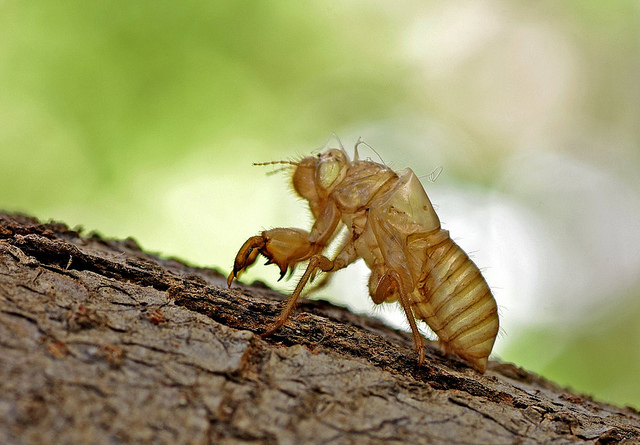Posted By: Haggart
In Nature Reserves of Germany - Flying Insect Populations Have Decreased 75% Over a 27 Year Time Span - 10/19/17 02:11 PM
The study was conducted by Researchers from Radboud University in the Netherlands and the Entomological Society Krefeld in Germany.
"Co-author Caspar Hallman said he and his colleagues were "very, very surprised" by the results"
"Here, we investigate total aerial insect biomass between 1989 and 2016 across 96 unique location-year combinations in Germany, representative of Western European low-altitude nature protection areas embedded in a human-dominated landscape (S1 Fig). In all years we sampled insects throughout the season (March through October), based on a standardized sampling scheme using Malaise traps. We investigated rate of decline in insect biomass, and examined how factors such as weather, habitat and land use variables influenced the declines. Knowledge on the state of insect biomass, and it’s direction over time, are of broad importance to ecology and conservation, but historical data on insect biomass have been lacking. Our study makes a first step into filling this gap, and provides information that is vital for the assessment of biodiversity conservation and ecosystem health in agricultural landscapes"
http://journals.plos.org/plosone/article?id=10.1371/journal.pone.0185809
I wonder what a comparative study would look like across different continents. Growing up in Corpus Christi we had lots of butterflies throughout our neighborhood but i don't see that in our current neighborhood in the Houston area despite the fact that we live in a area with abundant trees and natural areas. It could be the mosquito spraying we receive frequently. In another post someone mentioned the dramatic decline in bee populations so this makes this study even more troubling.
"Co-author Caspar Hallman said he and his colleagues were "very, very surprised" by the results"
"Here, we investigate total aerial insect biomass between 1989 and 2016 across 96 unique location-year combinations in Germany, representative of Western European low-altitude nature protection areas embedded in a human-dominated landscape (S1 Fig). In all years we sampled insects throughout the season (March through October), based on a standardized sampling scheme using Malaise traps. We investigated rate of decline in insect biomass, and examined how factors such as weather, habitat and land use variables influenced the declines. Knowledge on the state of insect biomass, and it’s direction over time, are of broad importance to ecology and conservation, but historical data on insect biomass have been lacking. Our study makes a first step into filling this gap, and provides information that is vital for the assessment of biodiversity conservation and ecosystem health in agricultural landscapes"
http:/
I wonder what a comparative study would look like across different continents. Growing up in Corpus Christi we had lots of butterflies throughout our neighborhood but i don't see that in our current neighborhood in the Houston area despite the fact that we live in a area with abundant trees and natural areas. It could be the mosquito spraying we receive frequently. In another post someone mentioned the dramatic decline in bee populations so this makes this study even more troubling.
